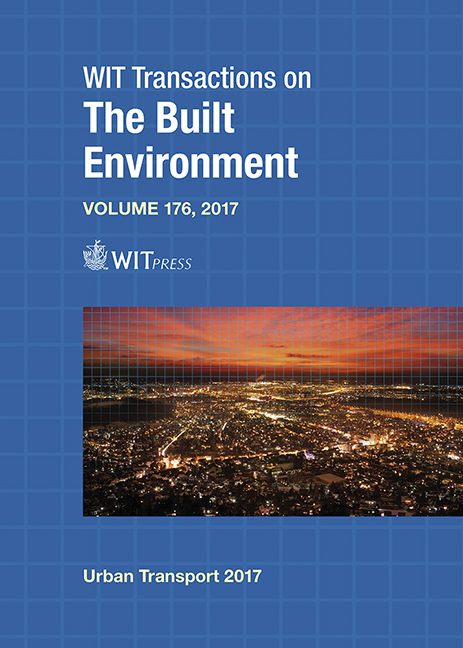CREATING A TRIBAL CULTURE OF TRAFFIC SAFETY
Price
Free (open access)
Transaction
Volume
176
Pages
10
Page Range
517 - 526
Published
2017
Size
423 kb
Paper DOI
10.2495/UT170441
Copyright
WIT Press
Author(s)
MARGO L. HILL
Abstract
Transportation systems and travel behavior have a high social impact on communities in terms of safety and security. Native Americans across the USA and specifically in Washington State experience vehicular fatalities at four times the rate of average American citizens. Tribes can reduce the number of fatalities and serious injuries on their reservation roads if they implement best practices to influence their communities to take control over behaviors that cause fatal accidents, such as impaired driving, speeding and not using seatbelts. Tribal sovereignty empowers tribal governments to enact traffic codes and training programs that will work for their communities. Tribes face complex problems such as multi-layered governance structures and legal frameworks, traditional cultural behavior and under-reporting of data. The Washington State Traffic Safety Commission funded Eastern Washington University (EWU) in 2014–15 and 2016–17 to develop a data-driven “Tribal Traffic Safety Demonstration Project” for six Washington State native tribes. Our EWU team developed a Tribal Traffic Safety Model to represent the complex interactions amongst the tribal programs and key stakeholders. We conducted dialogues with key tribal stakeholders to identify specific issues. We collected data on fatalities and mapped their location. We shared our findings with each tribe and provided examples of best practices. Our team interviewed key tribal staff personnel to assess existing codes, tribal court and law enforcement practices and tribal behavioral health treatment programs. Effective solutions emerge from data-driven planning and combined with tribal cultural teachings provide direction for tribal governments that cannot simply come from road engineering and traffic signage. Tribes can create traffic safety teams to work across Engineering, Emergency Medical Systems, Law Enforcement and Government Policies in order to improve traffic safety. Tribes are working to reduce fatalities and serious injuries but we have not seen significant reductions in traffic fatalities yet. This is an ongoing project.
Keywords
traffic safety, travel behavior studies, traffic fatalities, social impact, public policies and governance, impaired driving, American Indian





